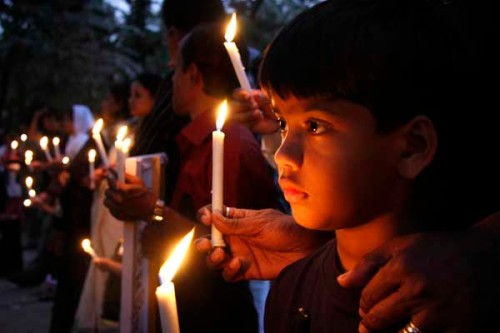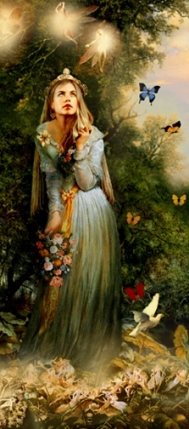 “THE Sun and Venus align themselves this week with the Pluto/Chiron sextile that is arranged in the background of our lives.”
“THE Sun and Venus align themselves this week with the Pluto/Chiron sextile that is arranged in the background of our lives.”
“This alignment is in preparation for the Taurus Full Moon,” explains Lauren at Astrology by Lauren — a Theosophy inspired website — “which culminates on the 6th of November.”
“Full Moons often bring things to a head, or unveils truths,” she writes: “this one also brings healing, or at least the tools to relieve ourselves of some serious baggage. It’s up to us to use them.” To read the full essay and next week’s horoscopes, visit the Articles and Horoscopes page.
Halloween, an annual holiday observed on October 31, primarily in the United States, Canada, Ireland, and the United Kingdom, is importantly in Theosophy understood as a harvest festival.
It is called “Samhain” (Summer’s End), and is rooted in Celtic polytheism. The word is also the Irish and Scottish Gaelic name for November.
The Halloween time was the beginning of a “darker” season on Earth, with less sunlight and shorter days. But instead of the usual psychic horrors and scary costumes, we choose instead to reflect upon an inner spiritual sun, symbolized by a flaming candle placed inside a hollow pumpkin.

Candlelight Vigil
“Today the season has morphed into a holiday celebrated with costumed children and treats, where children make their rounds like so many fairies and demons from beyond the veil,” Lauren writes:
“In ancient Ireland bonfires were lit in honor of the dying sun, and as a beacon to remind the Sun to return once more from the underworld, in order to light our days once again here in the North.
And so we continue to celebrate this most magical time of year with hope and anticipation of the returning light.”

Bonfire Dance
The spiritual sun consciousness manifests, by degrees, and is the inheritance of all kingdoms of nature as befits the plan of their particular hierarchy — from an atom to a star — not humankind alone.
Samhain, origin of Halloween, is similar to the Gothic samana, and the Sanskrit sámana — which is the Hindu God Krishna, a symbol of the Higher Self, who incarnates cyclically at mankind’s darkest times.
“Even though myself unborn, of changeless essence, and the lord of all existence, yet in presiding over nature — which is mine,” Krishna says in Ch. 4 of the Bhagavad-Gita: “I produce myself among creatures…whenever there is a decline of virtue and an insurrection of vice and injustice in the world; and thus I incarnate from age to age for the preservation of the just, the destruction of the wicked, and the establishment of righteousness.”

In the Bhagavad-Gita (IV:31), Krishna assures his disciple Arjuna that as a world benefactor he is reborn to nature and humanity. It is only the selfish Buddhas, the “Pratyekas” who remain in the their selfish state of personal Nirvana and refuse to reach out to help others.
Our daily sleeping and waking cycles correspond to this universal impulse which daily transports us to our true home.
W. Q. Judge explains in The Three Planes of Human Life, that dreamless sleep is a state “in which even criminals commune through the higher nature with spiritual beings, and enter into the spiritual plane.”
 Animals have many dream states too, and dreamless states where they commune consciously or unconsciously in varying degrees, depending on the kingdom to which they belong, with the spiritual hierarchies of their particular degree. For humans
Animals have many dream states too, and dreamless states where they commune consciously or unconsciously in varying degrees, depending on the kingdom to which they belong, with the spiritual hierarchies of their particular degree. For humans
“… it is the great spiritual reservoir by means of which the tremendous momentum toward evil living is held in check. And because it is involuntary with them, it is constantly salutary in its effect.”
In an ideal world, perfect harmony and balance between man and nature would be recognized and practiced by all. Thus, the keynote of Mme. Blavatsky’s worldview was the just and moral treatment of all the beings in nature, the First Object of the Theosophical Society, Universal Brotherhood.

All Nature is Conscious
This foundational teaching of Theosophy is expressed in The Secret Doctrine, Summing Up #5, which states that “everything in the Universe, throughout all its kingdoms, is conscious,” and
“…endowed with a consciousness of its own kind and on its own plane of perception.”
‡
Consequently, Mme. Blavatsky was adamant in opposing animal cruelty. She spoke out forcefully against sport hunting, foxes, birds and big game, and most strongly against vivisection — animals in biological experiments.
“If these humble lines could make a few readers seriously turn their thoughts to all the horrors of vivisection,” Blavatsky wished, “the writer would be content.”
 THE famous meditation of John Donne, “never send to know for whom the bell tolls, it tolls for thee,” highlights two Theosophical principles:
THE famous meditation of John Donne, “never send to know for whom the bell tolls, it tolls for thee,” highlights two Theosophical principles: 























 SAVING LUNA is an award-winning documentary produced by Mountainside Films, and directed by Michael Parfit and Suzanne Chisholm.
SAVING LUNA is an award-winning documentary produced by Mountainside Films, and directed by Michael Parfit and Suzanne Chisholm. 


 THE word magic is largely misunderstood, because there are various kinds of so-called magic, much of which is deception and trickery.
THE word magic is largely misunderstood, because there are various kinds of so-called magic, much of which is deception and trickery.
 ANYONE who thinks Theosophy is only abstract metaphysics, invisible worlds, and mystical hierarchies might want to think again.
ANYONE who thinks Theosophy is only abstract metaphysics, invisible worlds, and mystical hierarchies might want to think again. THE spiritual sun of consciousness manifests by degrees, not in humans alone, but the legacy of all kingdoms of nature as befits the plan of their particular hierarchy — from atoms to stars.
THE spiritual sun of consciousness manifests by degrees, not in humans alone, but the legacy of all kingdoms of nature as befits the plan of their particular hierarchy — from atoms to stars.






 THE act of true intending is widely misunderstood, because there are hidden aspects of so-called intent consisting solely of desire for personal fulfillment.
THE act of true intending is widely misunderstood, because there are hidden aspects of so-called intent consisting solely of desire for personal fulfillment. 



